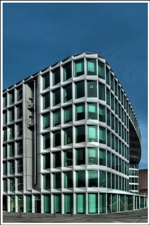The experience of buying bank owned assets may vary for many investors. For some, it can be a very rewarding process yet for others, somewhat frustrating. The trick is understanding and establishing a process that works for you. Below are a few tips that may be helpful to you while navigating the ever shifting landscape of bank owned assets.
- Establish Your Comfort Zone
Determine what bank owned asset product type works best for you or the product you are most knowledgeable about and stay with it. For instance, if your back ground is land, only shop for land. Don’t branch out just for the sake of getting a deal. The same is true for retail, office, industrial, multifamily and single family residential. Furthermore, if you only deal in Class “A” and “B” properties, don’t look at “C” and “D” properties. If you are in the position to buy in this market, apparently you are doing something right so stick with it.
- Know Your Asset from Your Elbow
Once you have identified a particular bank owned asset, contact the listing broker immediately. Make yourself a check list of items to request from the broker, for instance: an environmental study, property taxes, leases, plat etc…By doing so, you can eliminate a lot of brain damage and possibly eliminate that particular asset all together. Also, you can reduce the length of your due diligence/inspection period. It has been my experience that most banks will make some price concessions with a shorter inspection period, particularly if the offer is not subject to multiple contingencies.
- Cash is King
All sellers prefer an offer without a financing contingency. The same is true for bank owned assets. As stated above, that is why you should work towards making an offer with little to no contingencies. Some of your more progressive and forward thinking banks have allocated funds for financing their bank owned assets but they often require 25-30% down and the underwriting guidelines are stringent at best. And truth be known, most banks would prefer to have the asset off their books entirely. So if you don’t want to go that route and don’t have cash readily available, there is always private financing. Typically these private lenders command an above market interest rate ranging from 8-12%, so it is not for everyone. Which brings us back, cash is always king.
In closing, after considering all the above factors, determine the price you are most comfortable paying for that particular bank owned asset. If you are able to successfully negotiate a deal with the bank, great. If not, move on, be patient because there are plenty of deals out there and more to come.
Ben Jones
Commercial Real Estate Agent
Warner Robins Commercial Office
478-971-8000

